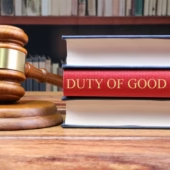Property Buying Process in Costa Rica

The Property Buying Process in Costa Rica: What You Need to Know
Purchasing property in Costa Rica can be a rewarding and secure investment—whether you’re looking for a vacation home, retirement destination, or income-generating rental. However, the legal process may differ from what you’re used to in your home country. Here’s a step-by-step guide to understanding how property transactions typically work in Costa Rica:
1. Making an Offer: Signed Purchase Agreement
Unlike in some countries where a verbal or email offer might be the norm, in Costa Rica, the offer is usually submitted through a formal, signed purchase agreement. This document outlines the terms, price, and key dates.
Submitting a signed agreement shows the seller you’re serious and ready to move forward. It also gives your attorney the legal framework to begin structuring the transaction and initiating due diligence.
2. Initial Deposit and Escrow Services
Once both parties sign the agreement, the buyer is typically required to submit an initial deposit—usually 10% of the purchase price—into an escrow account.
A reputable third-party escrow company, registered and regulated in Costa Rica, holds these funds safely until closing. The escrow company follows the exact terms outlined in the signed purchase agreement, as well as any addendums or modifications agreed to in writing afterward. This ensures the transaction proceeds according to the legally binding terms both parties have accepted and protects all funds involved in the process.
3. Due Diligence Period (Typically 15–20 Days)
The due diligence period begins immediately after signing. During this time, the buyer’s attorney investigates the property to ensure:
- The seller has clear legal ownership
- There are no liens, encumbrances, or legal disputes
- Property boundaries and land use regulations are in order
- All permits and building approvals (if applicable) are legitimate
If you’re purchasing a home or other structure, this is also the time to conduct a home inspection by a qualified professional to check for construction quality, roofing, electrical, plumbing, and any needed repairs or maintenance. While not required, a home inspection is highly recommended to avoid costly surprises later.
If any issues arise during this period, the buyer can negotiate repairs, request adjustments, or withdraw from the deal (depending on the contract terms) and receive a refund of the deposit.
4. Approval of Due Diligence
Once the attorney gives the green light and any inspections or concerns are resolved, the buyer formally approves the due diligence in writing. This confirms the buyer’s intent to move forward and locks in the right to close under the agreed terms.
At this point, the initial deposit becomes non-refundable. If the buyer backs out of the deal after approving due diligence, the escrow company will release the initial deposit to the seller as compensation for taking the property off the market and for lost time and opportunity.
5. Final Closing and Transfer
The closing date is typically set 30 to 60 days after signing the initial agreement. On closing day:
- The final payment is made via escrow
- A public notary (who is also a licensed attorney in Costa Rica) prepares and registers the transfer deed
- Ownership is officially recorded at the National Registry
- Any unpaid or prorated bills (such as utilities, HOA fees, or property taxes) are settled at closing, ensuring the buyer receives the property with no outstanding obligations
6. Who Pays What?
In Costa Rica, it’s more common for the buyer to cover the closing costs, which typically range from 3.5% to 4.5% of the purchase price, including legal fees, transfer taxes, and escrow fees.
The seller generally pays the real estate agent commissions, which are usually 5% to 7% of the sale price plus VAT (currently 13%).
Final Thoughts
Buying property in Costa Rica is a smooth and secure process when you have the right team—an experienced realtor, a trusted attorney, and a reputable escrow company. Taking a formal approach from the beginning, including submitting a signed purchase agreement, conducting due diligence, and using a trusted escrow service, helps ensure a safe and successful investment in paradise.
If you have any questions or are ready to explore properties, contact us at Pura Vida Rentals & Sales—we’re here to guide you every step of the way.

